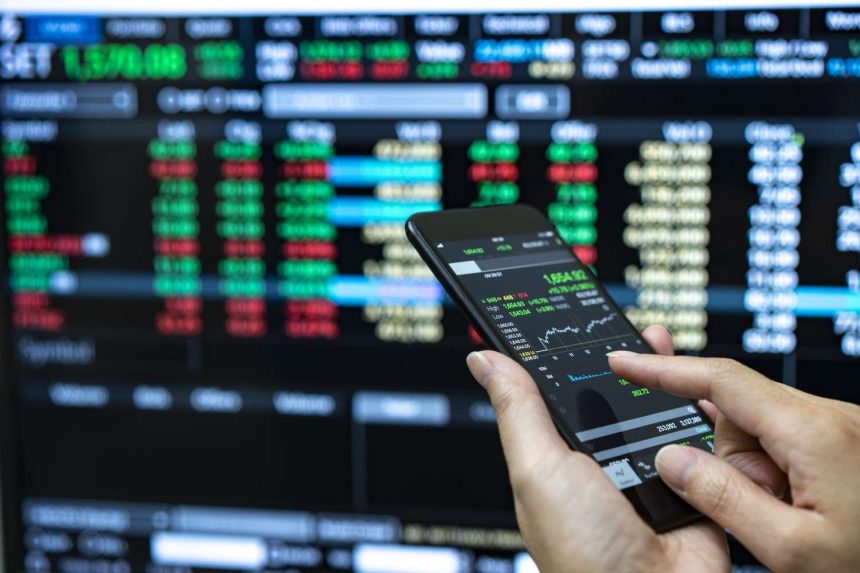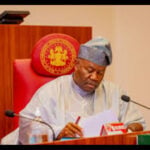By Fowope Mike
Speculative activities in online Forex trading have become an essential tool for traders and investors in economically challenged countries, often serving as a means of asset diversification to mitigate the impact of rising inflation.
While this has quickly turned into a trend, not much is said about it, but this article strikes a bold attempt at offering a full exploration of the subject, unraveling its benefits and complexities.
I am Fowope Mike, a distinguished fintech professional with several years of experience in financial markets. As someone deeply invested in CFDs Industry, I found Temitope Ijibadejo’s ‘Forex Trading as a Tool for Inflation Hedging among African Traders’ very interesting. It presents an opportunity to enlighten and to point key financial stakeholders toward making better investment decisions.
It’s the belief of many that online Forex trading has occupied the heart of many African traders to fight economic downtimes. This premise isn’t just an assertion; it’s a fact and is a discourse that shouldn’t be ignored; hence, the reason why I intend to extend the layers of the discussion—issuing a nuanced analysis of the subject matter.
The piece masterfully begins with an introduction that manages to put into perspective the realities of inflation in Africa, painting a clear picture of how economic instability affects different classes in society. How Temitope cleverly observed that inflation reduces purchasing power for both the upper and middle classes is particularly insightful.
Discussion of inflation all too often focuses its gaze on the poorest economic classes alone, but this article rightly delineates its widespread effect. I love how the claim of Online Forex Trading being an inflation hedge was quickly presented; it immediately prepares the mind of a reader. I consider it important that Temitope intentionally presented Online Forex trading as a strategic tool for Asset diversification, opening doors for more discussions about the subject, especially how this significantly impacts individual traders. From the stables of this introduction, it becomes easy to pool conversations around how online Forex trading became a viable alternative for traders, and what factors pull them toward entering the market.
Supported by relevant data and case studies, the article provides an in-depth analysis of African countries that its citizen heavily rely on online Forex trading as a strategic diversification tool. It highlights that inflation across the continent is substantiated by solid research, notably the IMF’s 2023 projection of 12.2% inflation in Sub-Saharan Africa, offering a strong basis for understanding the economic pressures driving the increased adoption of Forex trading.
Nigeria, Ghana, and Zimbabwe are cited as credible examples in this regard, as these nations have been experiencing some of the hardest inflationary pressures on the continent. The inclusion of Zimbabwe, in particular, should be commended since it is one of the strongest examples of hyperinflation in recent times. While I know that these statistical references strengthen the claims of the article, it would have stayed scholarly grounded with more in-depth analysis of actual-life testimonies of business operators who have used Forex to ride out economic catastrophes. Numbers tell part of the story; human testimonies provide them with flesh and blood.
A key point in the article is the connection between online Forex trading and tech advances. It recognizes that mobile and internet access have sparked a rise in Forex trading among young Africans. The statistics showing 40% mobile penetration in Africa give helpful context. Personally, I’ll say the biggest game-changer isn’t just access but money smarts. Many new traders fail not due to a lack of access to trading platforms, but because they lack the skills to manage risk effectively. However, the growing number of Forex coaching programs and training initiatives is helping to bridge this critical knowledge gap.
The rationale behind online Forex trading as a safeguard against inflation is well-founded. Forex traders benefit primarily in three ways: by diversifying their holdings across various currencies, capitalizing on price fluctuations, and leveraging the relative stability of certain currency pairs. However, these fluctuations are a double-edged sword—they present opportunities for profit but also expose traders to significant risk.
One thing is certain: Temitope effectively supported the discussion with well-grounded case studies. By spotlighting Nigeria as a leading online Forex trading market in Africa, the analysis lends credibility to previously unverified claims, particularly with its reported daily trading volume of $1.25 billion.
Referencing Zimbabwe’s history of hyperinflation as a case for Forex trading adds significant weight to the discussion, though the inclusion of trader testimonials could have further enriched the narrative.
The examination of Ghana’s inflation challenges and its shift toward Forex alternatives is insightful, and the mention of platforms such as Hantec and HotForex provides practical context. It would be valuable to explore how regulatory environments in each country shape trading dynamics—for instance, Nigeria’s frequently shifting Forex policies have a profound effect on traders, a trend that is similarly observed in other nations.
While the merits of Forex trading are well established, it is equally important to consider its potential drawbacks—an aspect this article commendably addresses. It underscores critical issues such as the substantial risk of financial loss, the complexities of regulatory frameworks, and the reliance on foreign trading platforms.
The segment on regulation particularly resonated with me. In several African countries, Forex trading continues to be met with caution, often resulting in stringent regulatory measures that impede industry advancement. Nigeria serves as a pertinent example, where regulatory reforms are currently gaining momentum. This progress is largely attributable to the unwavering efforts of Dr. Emomotimi Agama, Director General of the Securities and Exchange Commission (SEC), and his team, culminating in the recent assent by President Bola Tinubu to the Investment and Securities Act of 2025. A more in-depth exploration of these evolving regulatory policies and the adaptive strategies employed by traders would have further enriched the article.
The conclusion really brings everything together, highlighting how Forex trading has been a lifeline for many Africans grappling with the financial strain of inflation. It’s great to see a reminder for traders to develop solid risk management skills—definitely a responsible touch. That said, the final thought about Forex potentially reshaping Africa’s financial landscape is quite hopeful, strengthened with a look of how African governments can better embrace Forex instead of viewing it with skepticism.
Overall, this article is a thorough and insightful dive into Forex trading as a buffer against inflation in Africa. It’s packed with valuable data, relevant case studies, and practical insights. With its vital and informative claims on risk management, and tackling regulatory challenges—it has laid a groundwork for deeper conversations about Forex’s role in Africa’s changing financial scene. As someone who’s deeply involved in this field, I believe this discussion is not just timely but essential, as it highlights an area that often doesn’t get the attention it deserves yet is crucial for financial stability across the continent.






